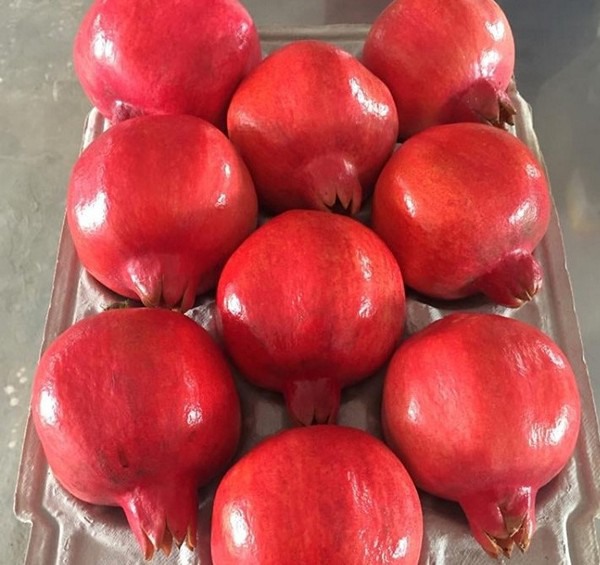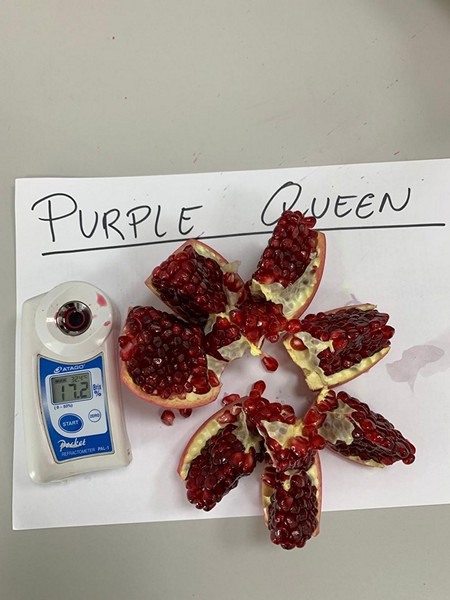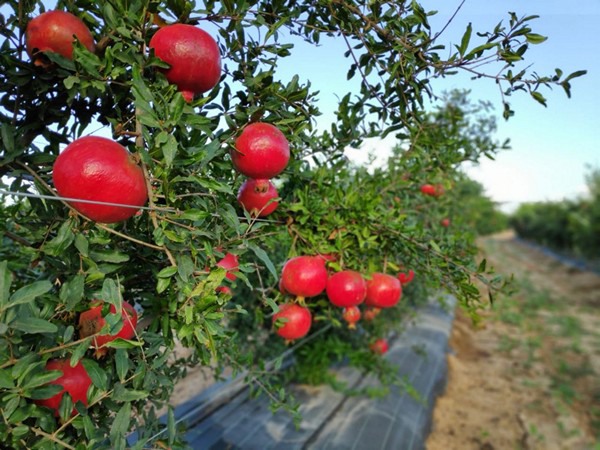 The campaign of Purple Queen® pomegranates is over. The early variety is much appreciated by consumers thanks to its sweet flavor and lack of woody arils.
The campaign of Purple Queen® pomegranates is over. The early variety is much appreciated by consumers thanks to its sweet flavor and lack of woody arils.
Despite ripening being at least one week late due to the weather, the Brix level reached 17%, so the juice can be 100% natural without the need for added sugars.
 Sweet pomegranate varieties are increasingly popular with consumers. Production is growing on the domestic market, and so are imports. In such a context, there is the need to occupy new market shares differentiating production thanks to varieties with a sweet flavor and noticeable management advantages.
Sweet pomegranate varieties are increasingly popular with consumers. Production is growing on the domestic market, and so are imports. In such a context, there is the need to occupy new market shares differentiating production thanks to varieties with a sweet flavor and noticeable management advantages.

Purple Queen (early) is followed on the market by Mely®(medium-early), MR-100®(medium) and Kingdom®(late). The harvesting of MR-100® started a few weeks ago. Its sweetness and ease of use are making it truly popular despite the fact that domestic production is low in a market entirely occupied by traditional varieties.
Patented varieties Purple Queen®, Mely®, MR-100® and Kingdom® have innovative characteristics in the sector. They are easy to manage thanks to the absence of buds and thorns, meaning management costs are lower.
 Difference in buds: MR-100® on the left - Mollar de Elche on the right.
Difference in buds: MR-100® on the left - Mollar de Elche on the right.
These varieties were definitely developed to be consumed fresh, but their sweetness and lack of woody arils make them perfect for juices as well. ,
New orchards are expected to be planted in 2020 not only in the Ionian area but also in Sicily, Salento and Emilia-Romagna. In Italy, licences for these varieties are limited to 100 hectares (for each variety).
A club and production specifications are in the course of being set up to make it easier for consumers to recognize the product.
Contacts:
Comercial Gallo
Sp 103 c.da Furnoli
74016 Massafra (TA) Italy
Tel.: +39 335 5332359
Email: info@comercialgallo.com
Website: comercialgallo.com
